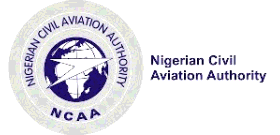 NSIB Recommends Inspection of Allied Air Aircraft Following Abuja Incident
NSIB Recommends Inspection of Allied Air Aircraft Following Abuja Incident
The Nigerian Safety Investigation Bureau (NSIB) has recommended that the Nigeria Civil Aviation Authority (NCAA) conduct thorough inspections on all Allied Air aircraft to identify potential mechanical and structural vulnerabilities. This recommendation follows a preliminary report on an accident involving an Allied Air cargo aircraft in Abuja on December 11, 2024. This incident highlights the importance of regular maintenance checks and stringent safety protocols within the aviation sector.
Specifically, the NSIB has advised the NCAA to focus on the flap and landing gear systems of the cargo airline's fleet. This recommendation is aimed at preventing similar occurrences in the future. These specific areas of focus suggest that these systems may have played a significant role in the incident. This recommendation is intended to improve safety standards across the entire airline fleet.
The accident involved an Allied Air Cargo aircraft Boeing 737-400 freighter, with registration number 5N-JRT, at the Nnamdi Azikiwe International Airport in Abuja. The aircraft was en route to collect cargo for the Central Bank of Nigeria (CBN) when it experienced a malfunction with its flaps during its final approach at the airport. The aircraft was scheduled to collect cargo for the Central Bank of Nigeria (CBN). This information is key to understanding the circumstances surrounding the incident.
According to the NSIB report, upon landing, the right main landing gear of the aircraft collapsed, causing the number two engine nacelle to drag along the runway. The aircraft then veered off the runway and came to rest on the grass verge. Despite the incident, all six occupants onboard were unharmed, and no injuries were reported. This is good news, considering the serious nature of the incident.
The NSIB report added that the flight crew reported hearing “a bang from the aircraft’s right side” as the wheels touched down on the runway surface. The aircraft then collapsed to the right as the crew attempted to maintain directional control. This detail provides insight into the initial stages of the incident.
The NSIB's investigation will now focus on a detailed inspection of the right main landing gear assembly, testing and examination of the aircraft’s flap drive system components, and further analysis on the main wheel tyres for any indications of failure or wear. This thorough approach to investigation reflects NSIB's commitment to enhancing aviation safety. The agency will leave no stone unturned in their analysis, in order to determine the cause of this event.
The report did note, however, that the flight crew held valid, current licenses and were qualified to conduct the flight, and the aircraft had a valid Certificate of Airworthiness (CA). This means that there were no issues with the qualifications of the crew or the condition of the aircraft prior to departure. The aircraft had come in from Doula, Cameroon, with no snags logged in the aircraft technical logbook. The flight was the first sector out of six scheduled sectors, with the same flight crew set to operate them. This information will help the NSIB determine the possible cause of this incident.
For travel agents, this incident and the NSIB’s recommendations highlight the importance of choosing reliable airlines with stringent safety standards. While this particular incident involved a cargo flight, safety recommendations such as this one are important for the entire aviation industry, and should be noted when making travel arrangements for your clients.
